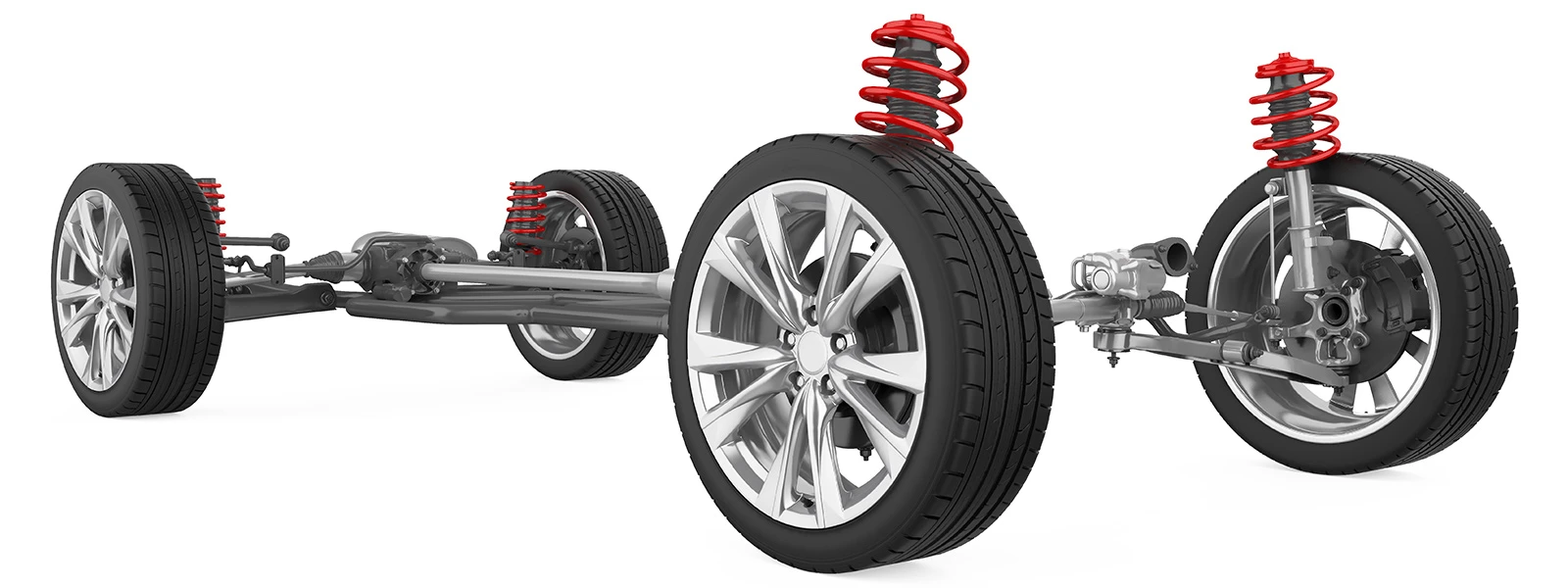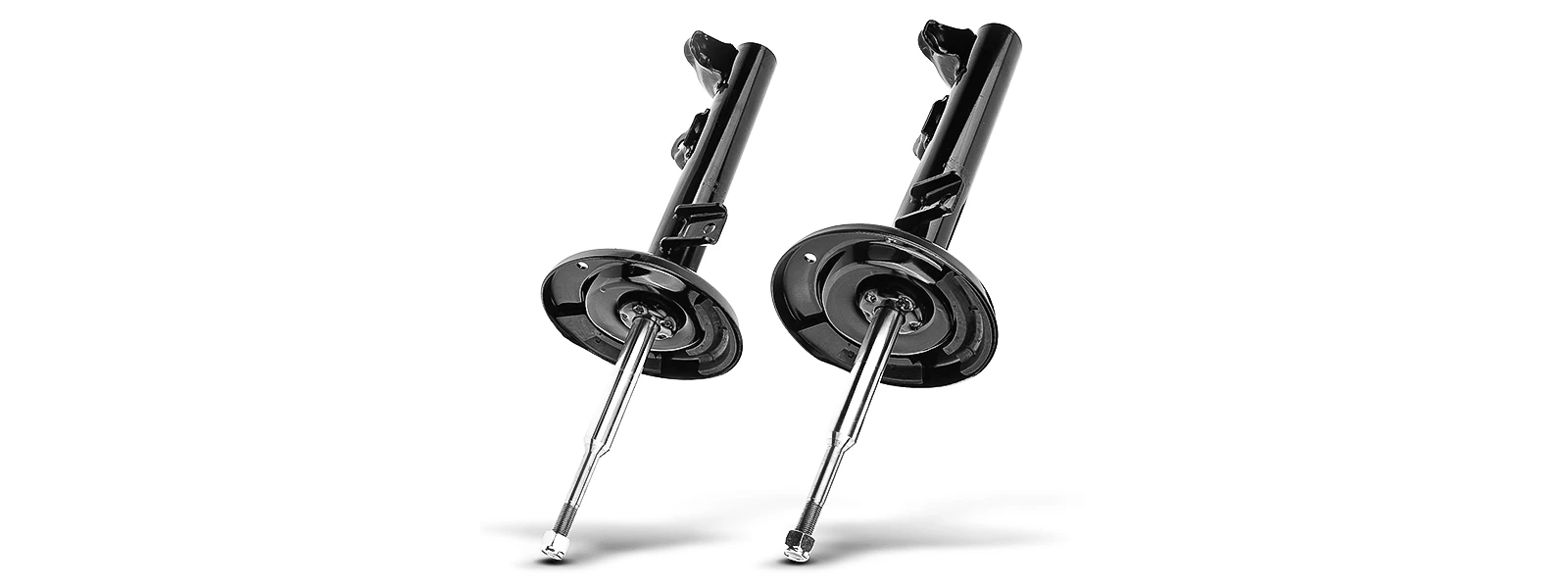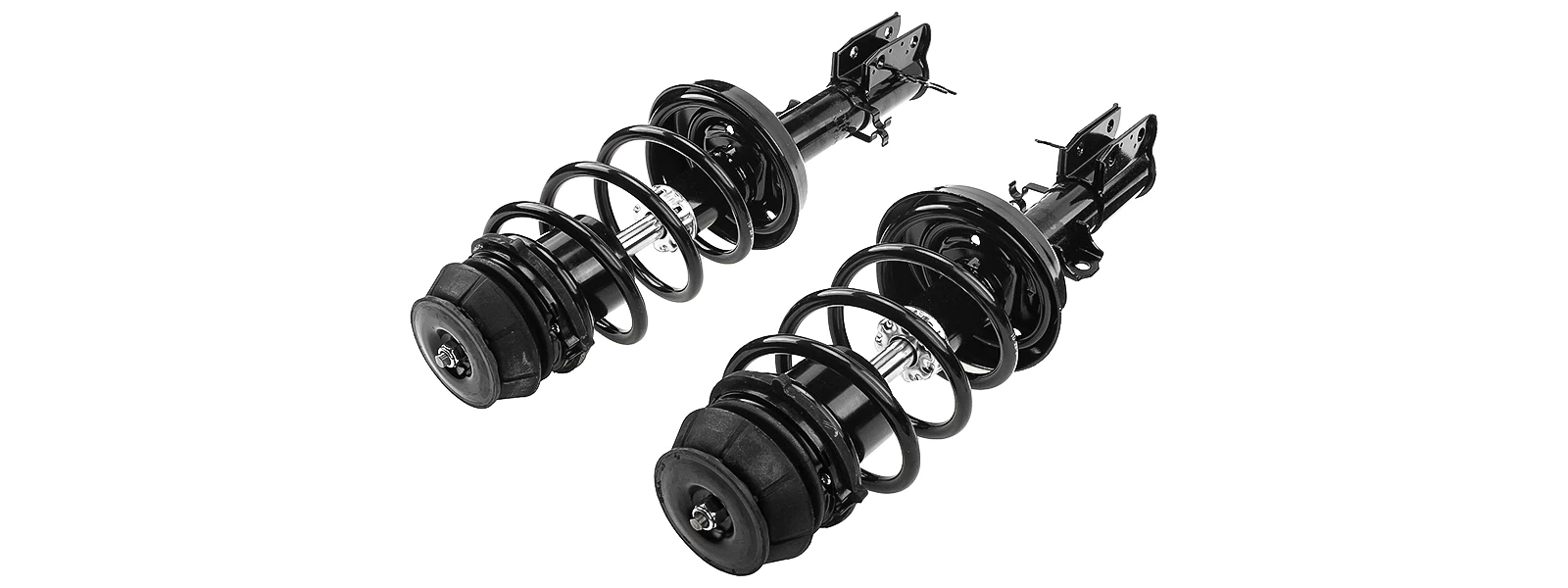
What is Shock Absorber in Car?

Tired of feeling every bump and dip in the road when you're driving? Discover how shock absorbers can improve your vehicle's suspension system and give you a comfortable and safe ride.
When you think of a car, you might think of the engine, wheels, and brakes. However, there's one vital component that often goes unnoticed: the shock absorber. A shock absorber, also known as a suspension damper, is a mechanical device that is typically installed on a vehicle's suspension system to help absorb and dampen the shocks and vibrations that occur when the vehicle travels over uneven or rough surfaces.

What does a shock absorber do?
The main purpose of a shock absorber is to improve the ride quality and handling of the vehicle by reducing the amount of bouncing, swaying, and bouncing that can occur when driving on rough terrain. When the vehicle hits a bump or pothole, the shock absorber compresses and absorbs the impact energy, then releases the energy as the suspension extends back to its normal position. This process helps to maintain contact between the tires and the road surface, improving traction and stability, and reducing wear and tear on the suspension components.
Understanding the structure of shock absorber
There are different types of shock absorbers, so their components may vary depending on their design and application. A typical hydraulic shock absorber may consist of the following components:
- Piston - A metal rod that moves up and down inside the shock absorber cylinder.
- Cylinder - A tube that encloses the piston and oil.
- Oil - A specialized hydraulic oil that is used to lubricate the piston and reduce friction.
- Valving - A system of valves that controls the flow of oil through the piston and determines how the shock absorber responds to bumps and vibrations.
- Compression valve - A valve that regulates the flow of oil during compression of the shock absorber.
- Rebound valve - A valve that regulates the flow of oil during the rebound of the shock absorber.
- Coil spring - A spring that helps to absorb shocks and maintain the height of the vehicle.
- Mounting hardware - The hardware that connects the shock absorber to the vehicle's frame and suspension.
- Dust cover - A protective cover that helps to keep dirt, debris, and moisture out of the shock absorber.
Types of car shock absorbers
There are several types of shock absorbers used in cars, including:
- Twin-tube shock absorbers: These are the most common type of shock absorber and consist of two nested tubes with a piston and oil inside. They provide good ride comfort and are generally affordable.
- Mono-tube shock absorbers: These have a single-tube design and offer better performance than twin-tube shock absorbers. They are usually used in high-performance and sports cars.
- Gas shock absorbers: These use pressurized gas instead of oil to dampen shocks. They provide better handling and are more durable than traditional shock absorbers.
- Coilover shock absorbers: These are integrated spring and shock absorber units that allow for adjustable ride height and stiffness.
- Electronic shock absorbers: These are controlled by a computer that adjusts the damping based on road conditions and driving style. They provide the best ride quality and handling but are also the most expensive.
What factors may affect shock absorber performance?
When a car encounters a bump or uneven surface, the shock absorbers help to maintain contact between the tires and the road, preventing excessive bouncing or jolting of the car body. So understanding the factors that can influence the performance of shock absorbers is not only necessary but also will be helpful in maintaining this crucial part of our vehicle.
- Age and wear happens all the time. Over time, the internal components of the shock absorber can wear out and lose their ability to dampen shocks. This can lead to poor ride quality, reduced handling, and increased tire wear.
- The temperature. Shock absorber performance can be affected by extreme temperatures. High temperatures can cause the oil to break down, while low temperatures can cause the oil to thicken and reduce damping ability.
- Road conditions can also impact the working of shock absorbers. The type of road surface and driving conditions can also affect shock absorber performance. Rough or uneven roads can cause more shocks, while smooth roads may not require as much damping.
- The weight of the vehicle and its load can also affect shock absorber performance. Heavier vehicles and loads require stiffer shock absorbers to prevent excessive body roll and improve handling.
- Driving style also matters. Aggressive driving can also affect shock absorber performance. Sudden braking or acceleration can cause the shocks to work harder and wear out faster.
- The quality of the shock absorber itself can also affect its performance. Cheap or poorly made shock absorbers may not be as effective at damping vibrations and impacts, leading to a less comfortable ride and reduced handling performance.
Therefore, to offset the above influential factors, you need to:
- Regular maintenance: Check the shock absorbers and replace them when necessary.
- Choose the right type of shock absorber: Consider your vehicle and driving conditions.
- Avoid aggressive driving: Avoid hard braking, accelerating, and cornering.
- Watch your vehicle's load capacity: Do not overload your vehicle.
- Use quality parts: Use high-quality parts and components.
- Avoid extreme temperatures: Try to avoid exposing your vehicle to extreme temperatures.
Quick guide: shock absorber maintenance
As mentioned, regular maintenance matters a lot in prolonging the service life of the shock absorber. Then what should be done? You can refer to these steps:
- Inspect the shock absorbers regularly for signs of wear and damage, such as leaks, dents, or physical damage. If you notice any signs of wear, it's time to replace the shock absorbers.
- Check the suspension system for other worn or damaged components, such as springs, mounts, and bushings. These components can affect the performance of the shock absorbers, so replace them if necessary.
- Clean the shock absorbers regularly to remove dirt and debris that can accumulate on the surface. Use a cloth or brush to clean the shock absorbers.
- Lubricate any moving parts of the shock absorber, such as the piston and rod, according to the manufacturer's instructions. This will help to ensure that the shock absorber operates smoothly.
- Test the shock absorbers by bouncing the vehicle up and down on each corner. Listen for any unusual sounds or movements, as these can be signs of worn or damaged shock absorbers.
In summary, shock absorbers play an important role in ensuring a smooth and safe driving experience. By absorbing shocks and vibrations from the road, they protect the vehicle's suspension system and provide comfort to passengers. Regular maintenance and inspection of shock absorbers can help prevent costly repairs and ensure optimal performance. So, if you notice any issues or changes in your vehicle's ride quality, it's best to have your shock absorbers inspected by a professional mechanic to avoid further damage. Overall, taking care of your shock absorbers is key to maintaining a smooth and comfortable driving experience.













